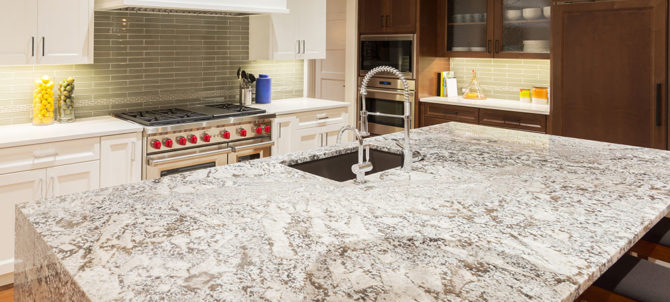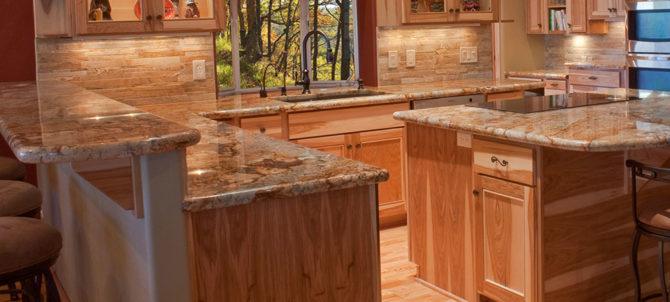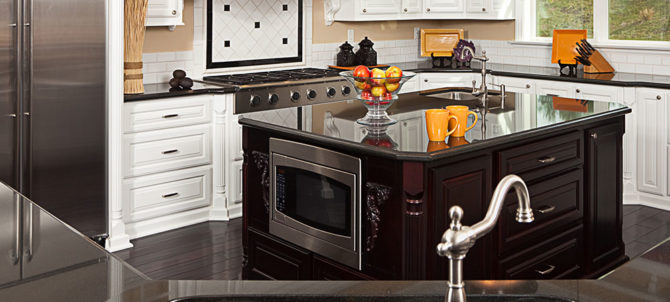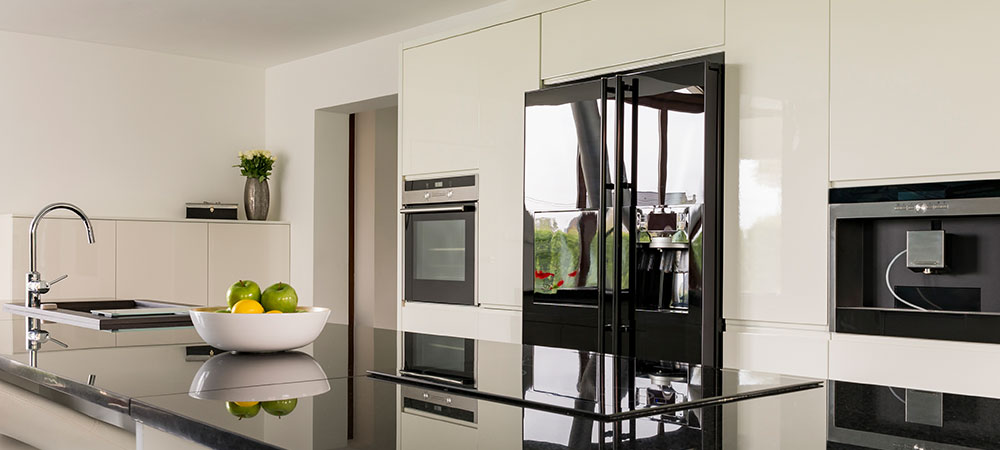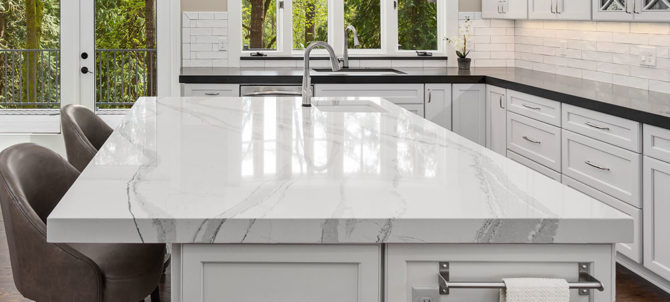
Do you own marble countertops? You should know that it’s your responsibility to keep them in top shape. For this to happen, you need to observe a set of dos and don’ts, which include:
Don’t leave grime on the countertops
If you have small children or a large family, it’s common to have stains on your countertops.
It’s easy to forget about these stains, especially if tired.
You should note that when you let the stains stay on your countertops for long, they permanently stick on the surfaces, and you have an extremely hard time removing them.
Sometimes you are even unable to remove them, and you have to replace the countertops.
You should always wipe your countertops after using them to prevent this from happening. To protect the surfaces from stains, always cut your fruits, vegetables, meat, and other food items on a board—never cut directly on the surfaces.
Don’t use acidic cleaners.
As much as you want your countertops to look exquisite, you shouldn’t clean them using acidic cleaners. This is because the cleaners will dull the professional finish and eat away at the stone surfaces, leading to etching.
Etching resembles watermarks or surface stains, but they are chemical burns that have damaged your surfaces. If you used a lot of acids and the etching is extensive, you may need the services of an expert to restore the damaged areas.
To be on the safe side, use the right cleaning products. As a rule of thumb, use products specially formulated for use on marble and other natural stones. If you aren’t sure about the right one to go for, get the input of a professional.
In the event you find your countertops with a stain, there are several ways you can remedy the situation. If you have oil or grease stains, create a baking soda and acetone mix, then apply it to the affected area.
Let the mixture sit for 24 hours before wiping it away and rinsing it with water. If the stains sit deep into the countertops, you may have to apply the mixture two to three times.
Once you are done removing the stain, remember to apply a sealing agent to provide your countertops with an extra layer of protection and prevent more stains.
If your countertops have wine, coffee, tea, fruit juice, or any other organic stains, remove them by mixing one part laundry bleach with one part water, then spray it onto the surfaces. Let the mixture stay on the surface for 15 minutes, then rinse it with water.
You can also place a clean paper towel over the stain, then pour a 3-4% hydrogen peroxide solution to the towel to the point of saturation. Allow the solution to sit on the countertop for at least 24 hours before wiping away and rinsing the area with water. If the stain doesn’t go away, repeat the procedure.
Seal the countertop at least once a year
Marble is highly porous, so it needs regular sealing to prevent stains. You should always seal the countertops the first thing after installing them, but this isn’t enough—you need to seal them at least once every year.
To tell whether it’s time to seal the countertops, undertake a water test. Here you pour 3 inches of water on several areas of your countertop then let it sit for at least 30 minutes. If you see a dark mark or ring on the countertops, the water is penetrating the stone and it’s time to reseal the surfaces.
You can do the sealing if you have the skills, but let it be done by an experienced professional for the best outcome.
Polish the countertops
Besides sealing the surfaces, you also should polish them to maintain a shiny, clean look.
There are plenty of products you can use to do the cleaning. From cleaning agents with neutral pH to acetone and hydrogen peroxide, there are plenty of options you can go with.
Unlike sealing, you can polish the kitchen countertops Durham by yourself. You need to ensure that you don’t overdo it as marble is highly delicate and can easily break if you over polish it.
